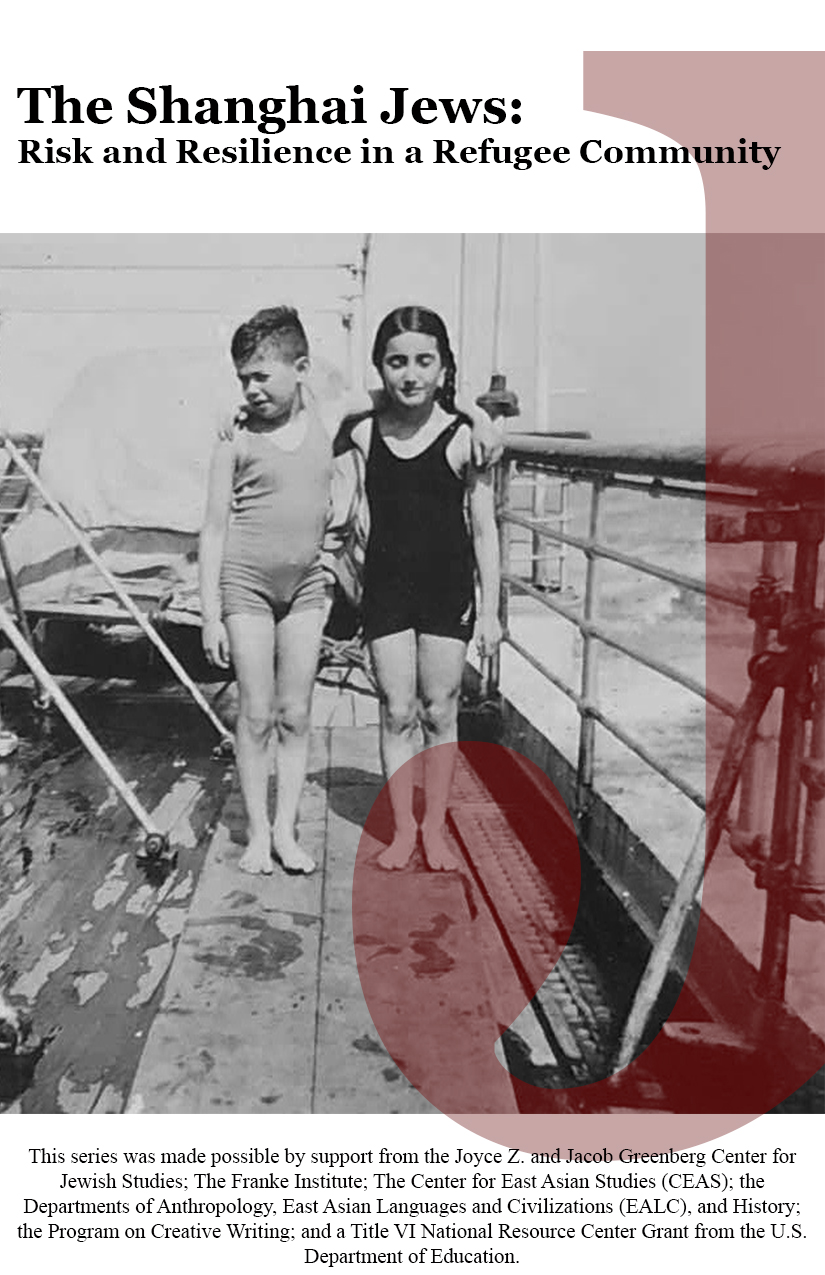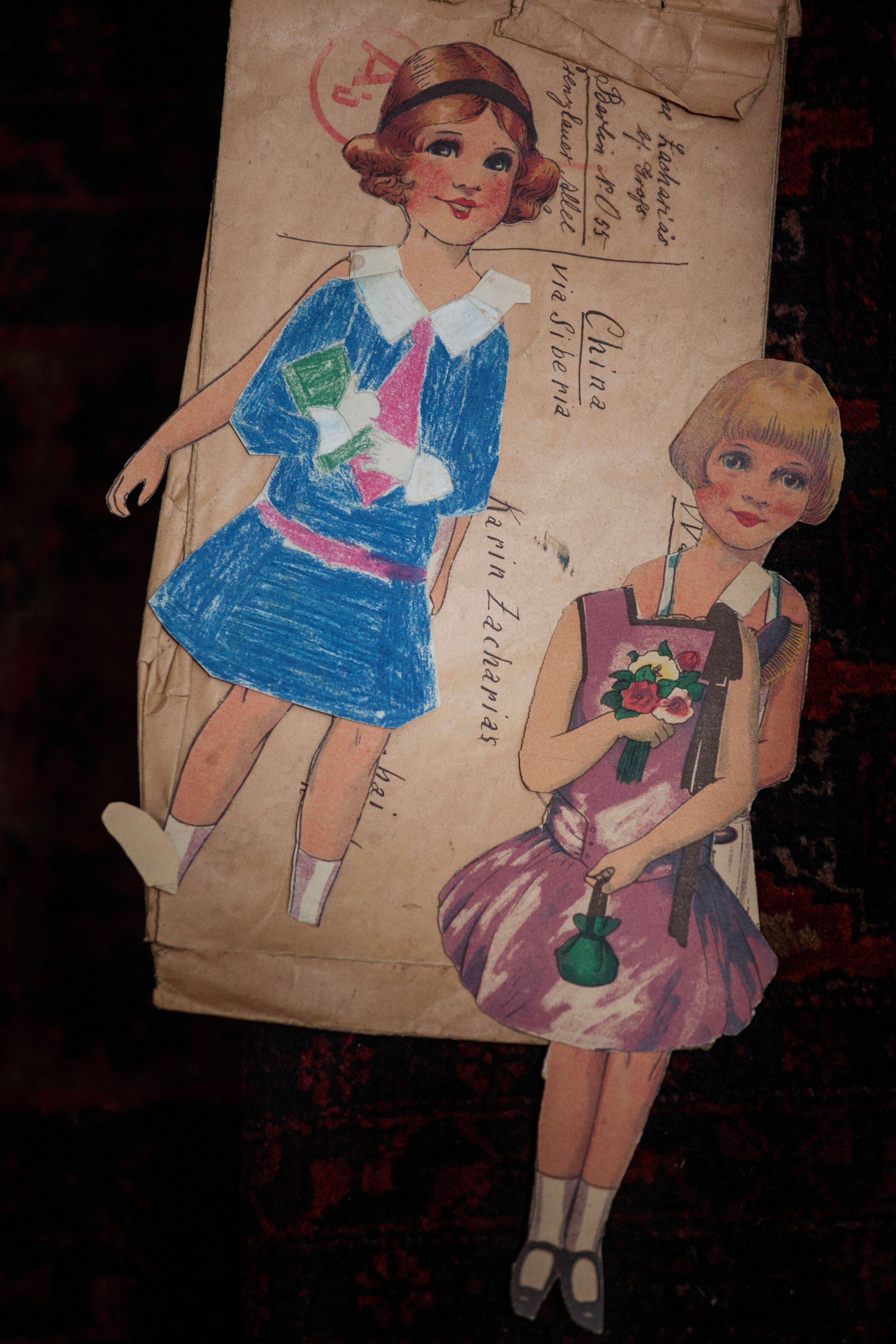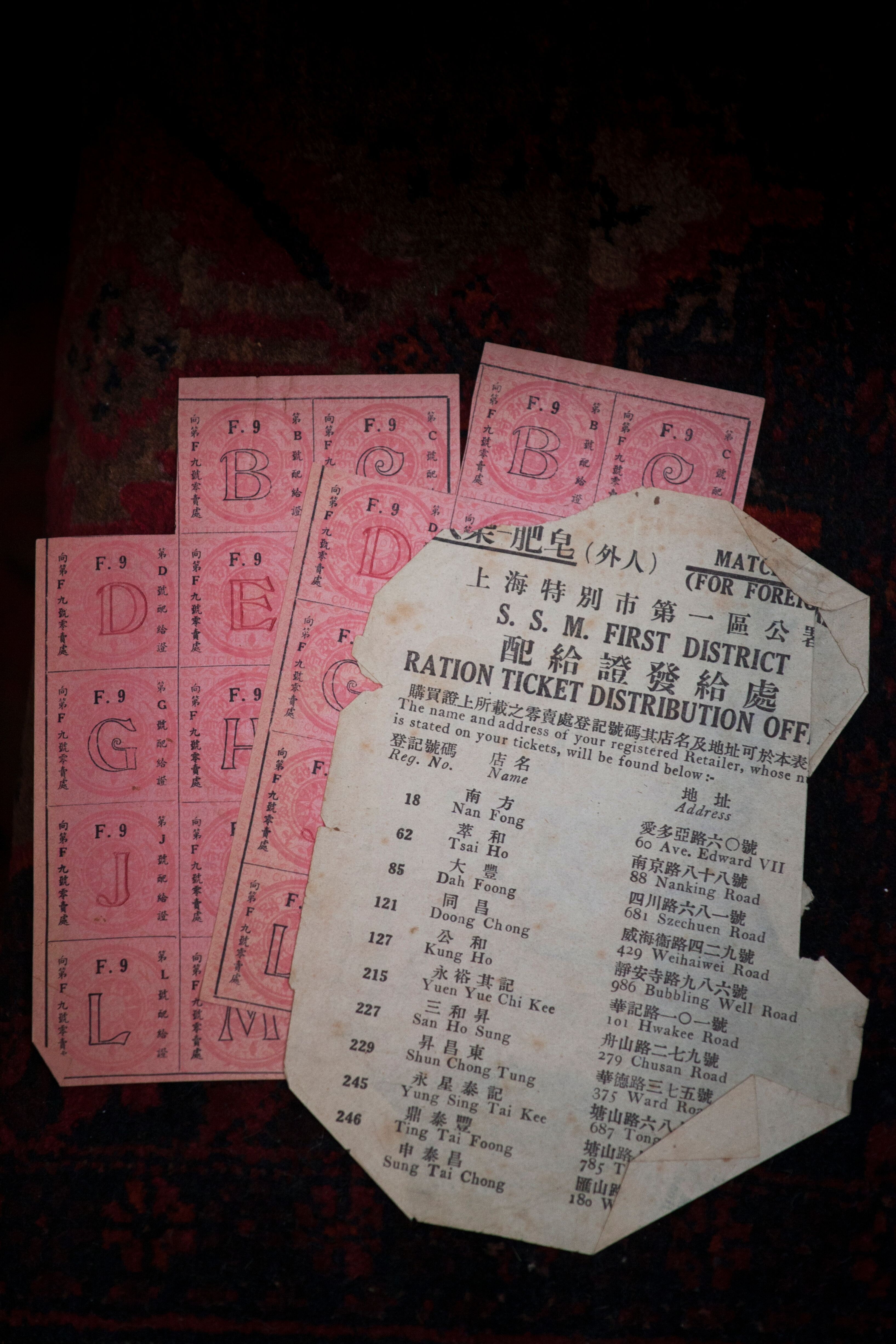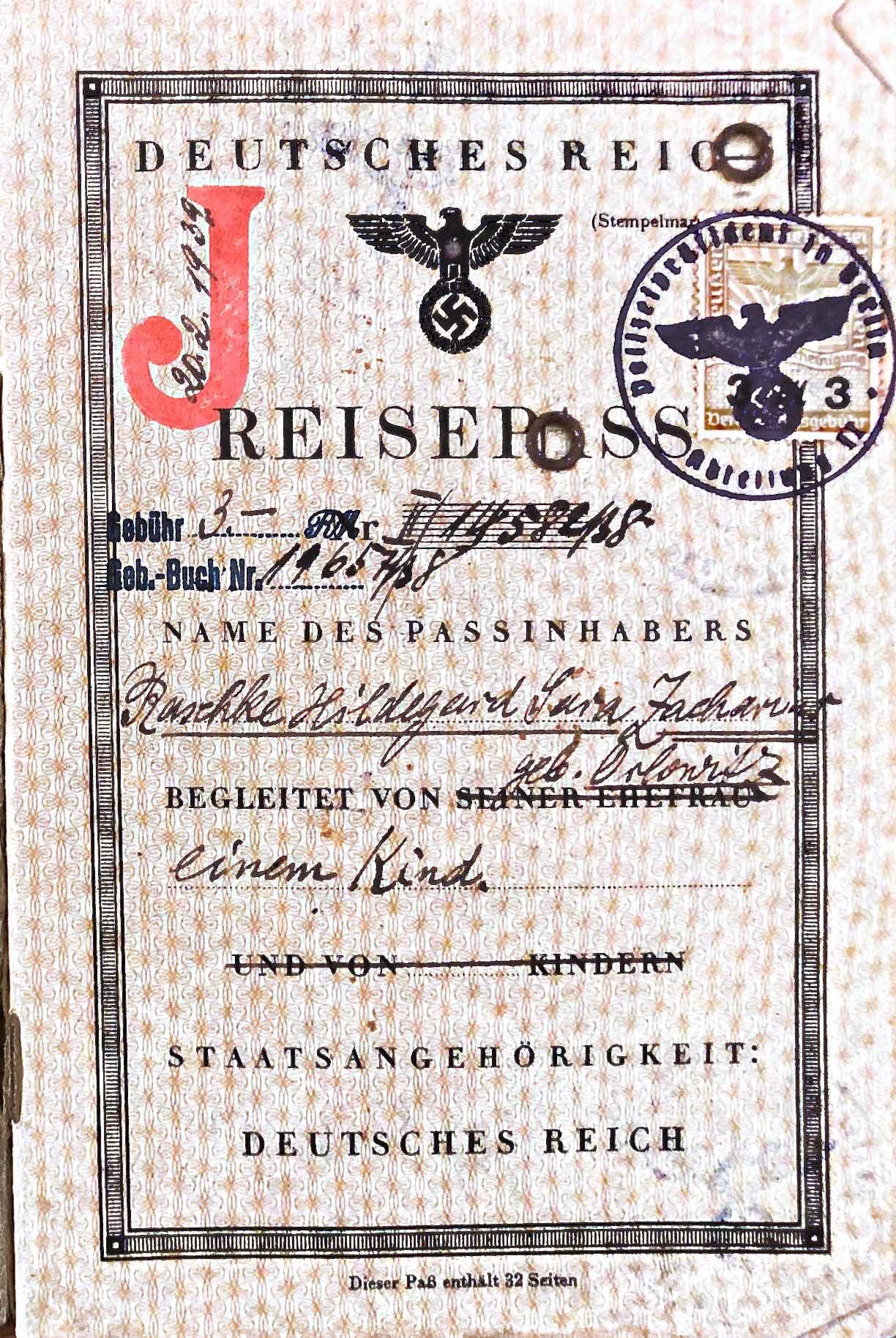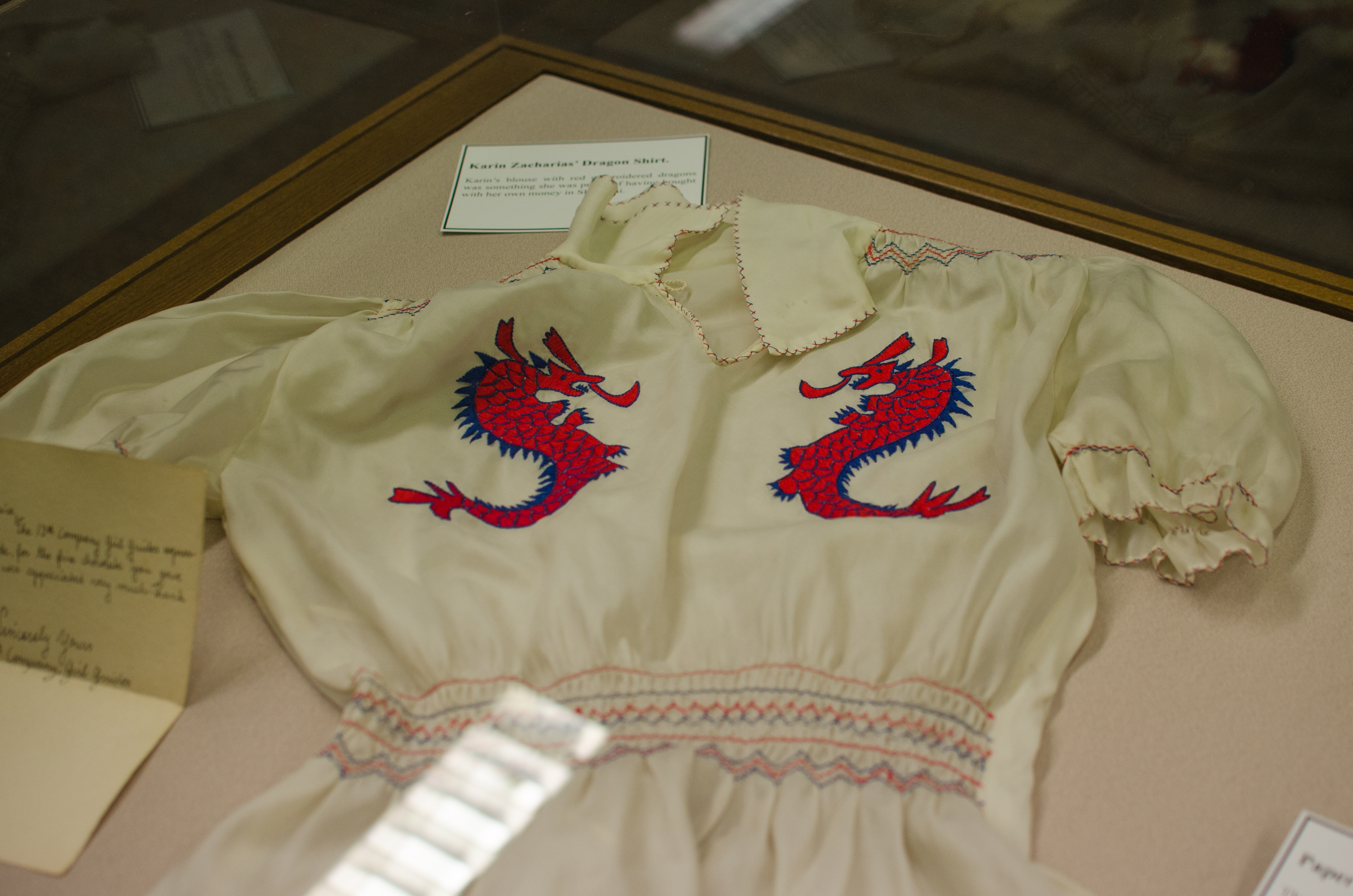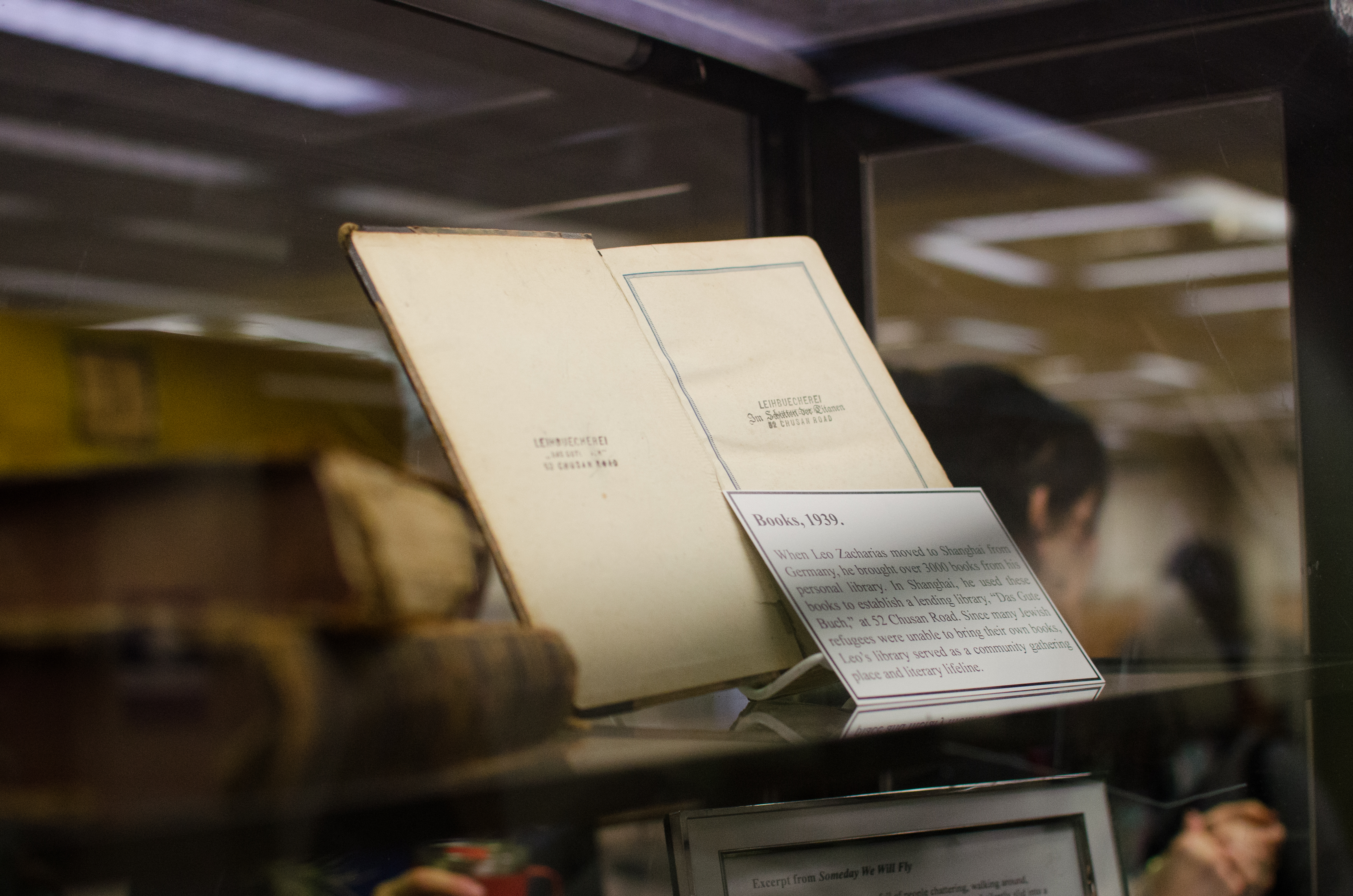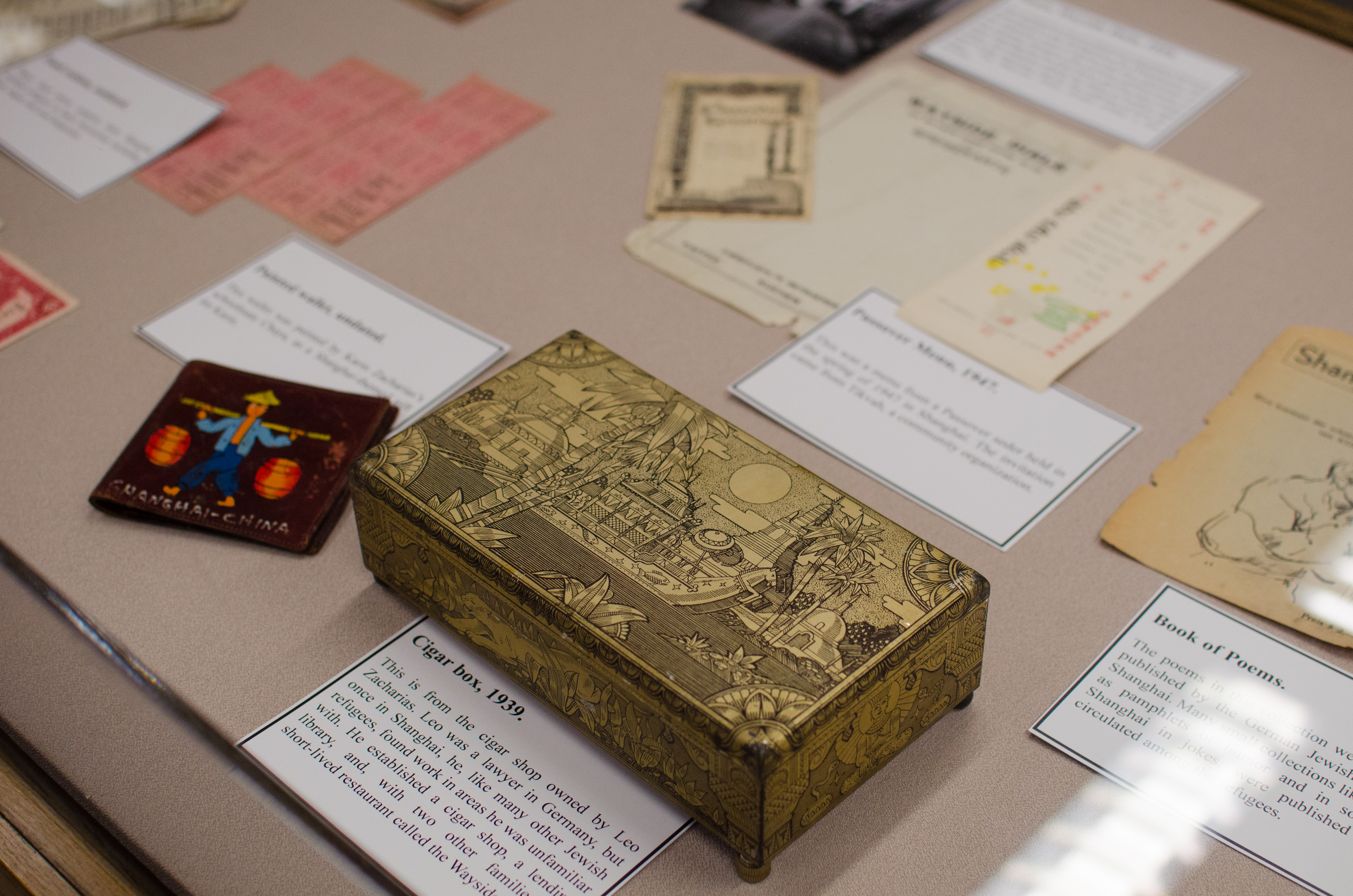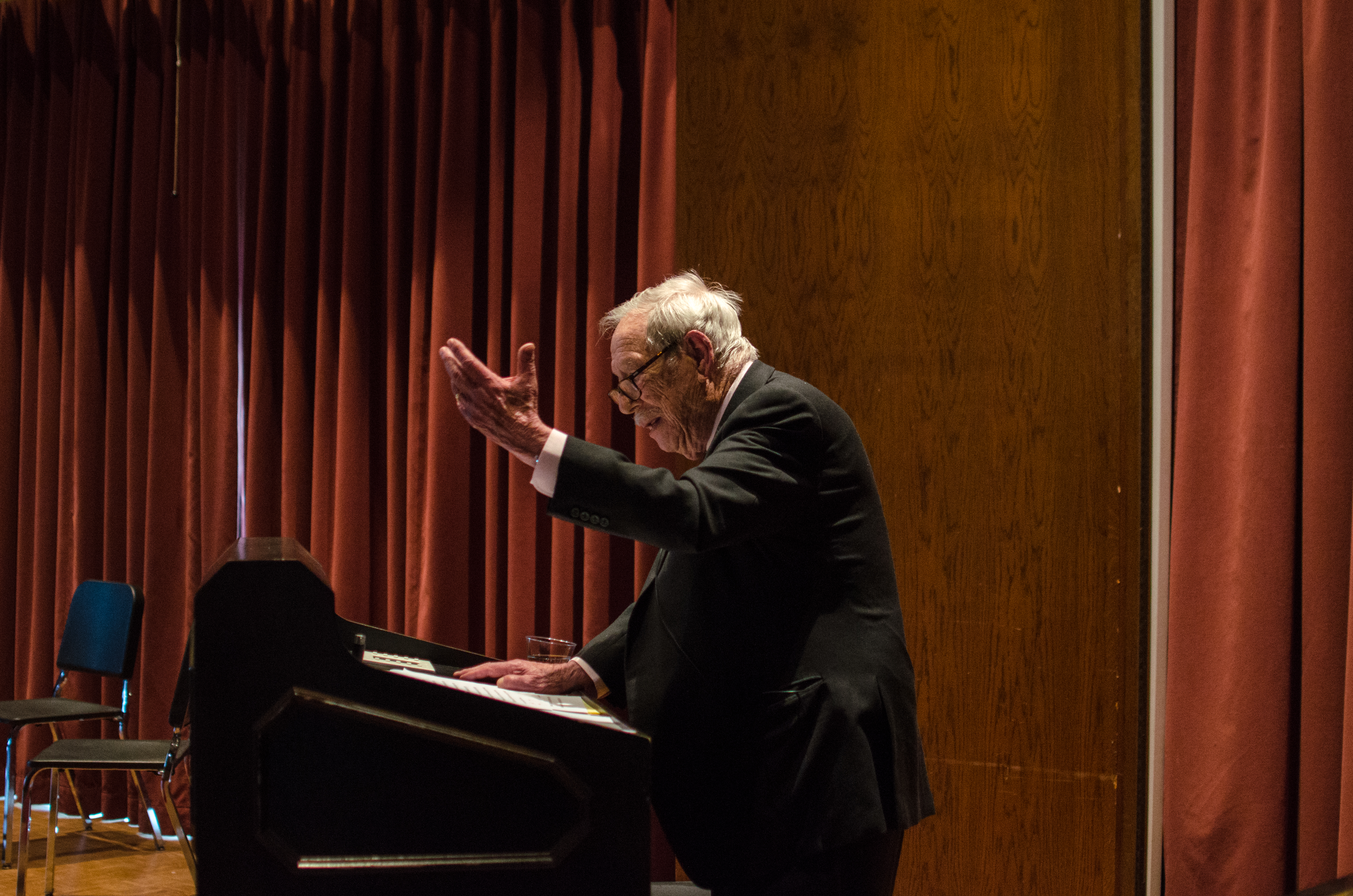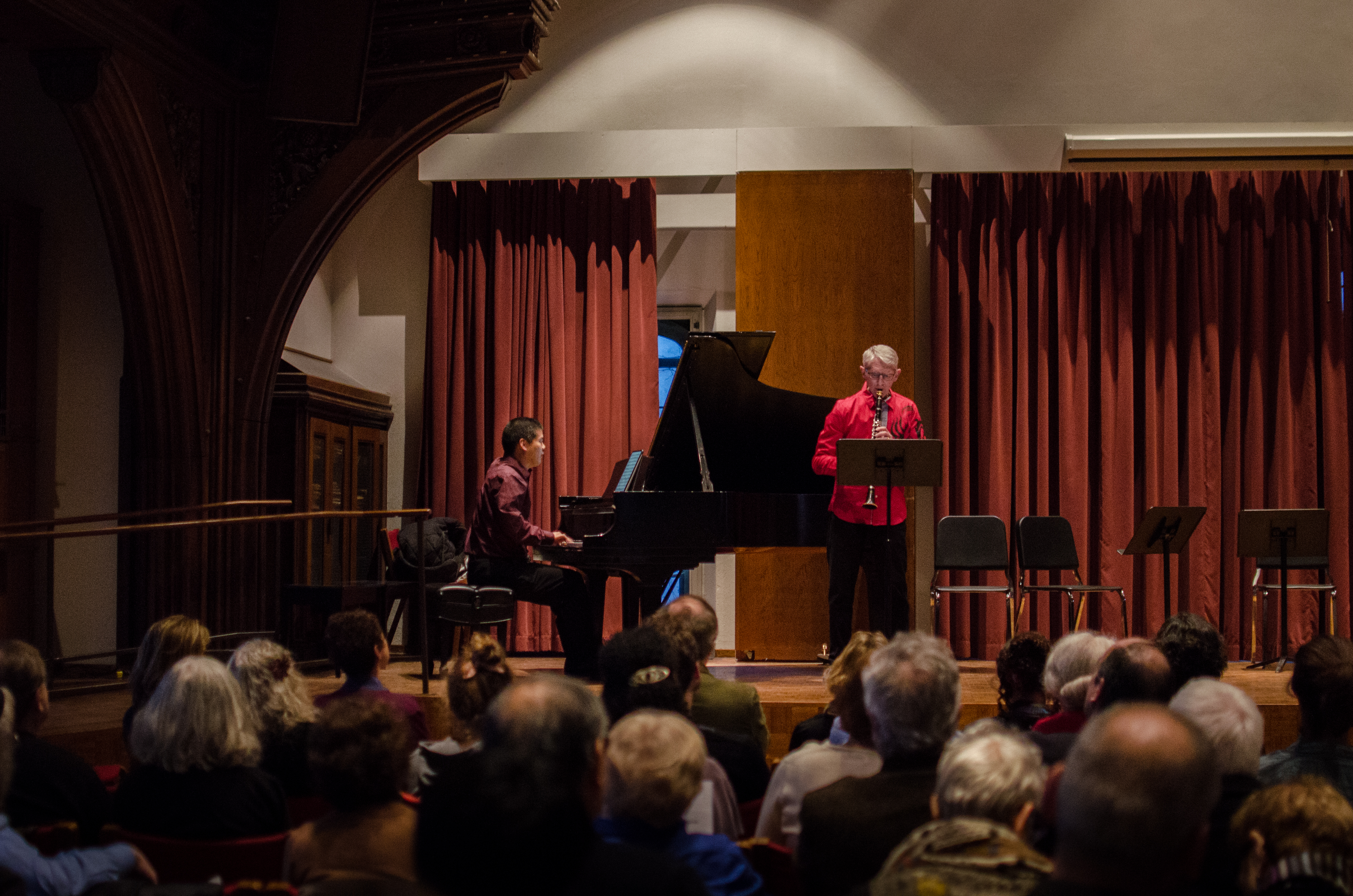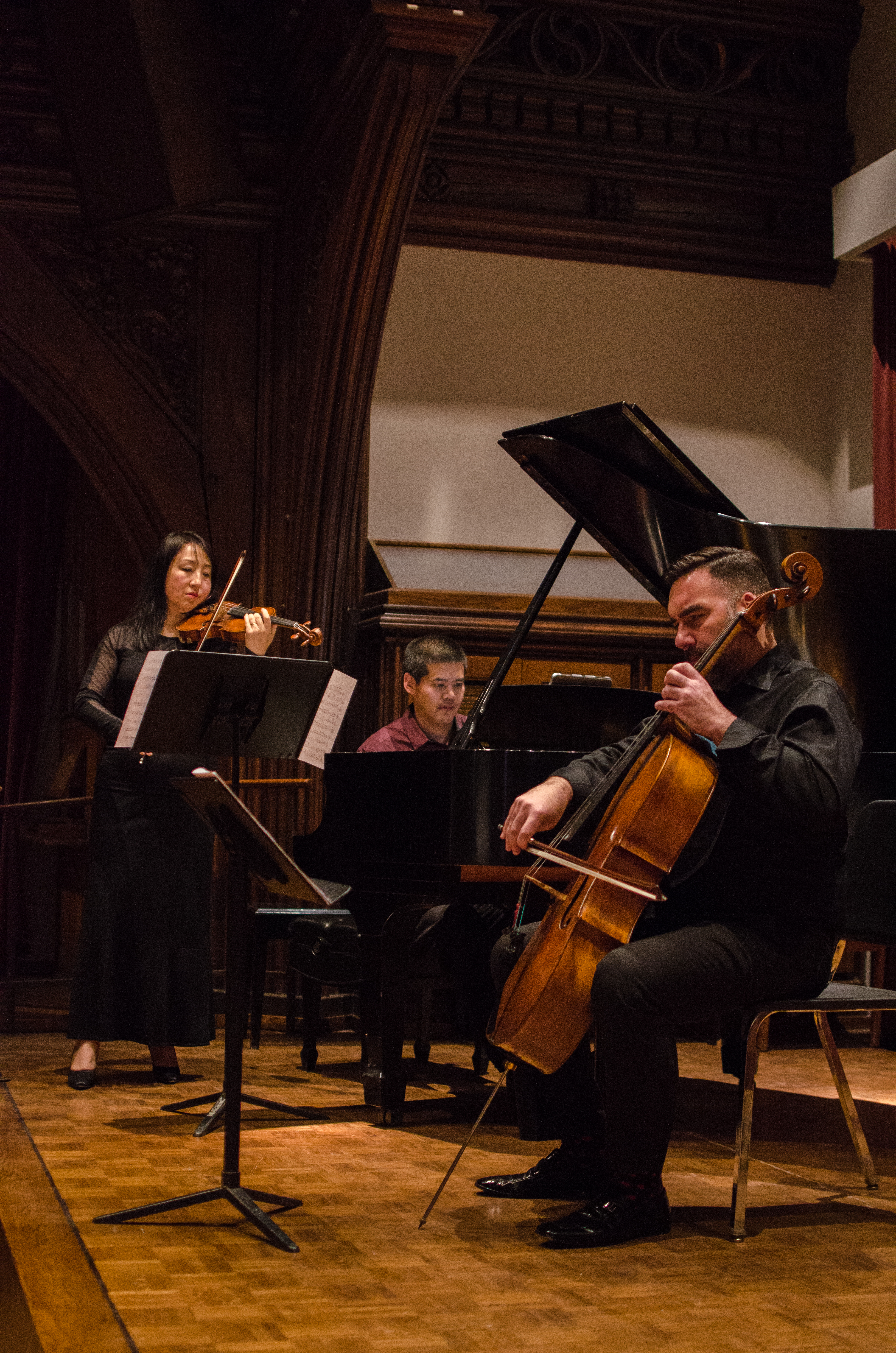Risk and Resilience in a Refugee Community was an event series at the University of Chicago exploring the experience of nearly 23,000 Jewish refugees who escaped to Shanghai during World War II.
This series opened with an exhibit featuring unique historical objects, documents, and photographs donated by families who lived in Shanghai during the war. Many of the objects were on loan from Dr. Jacqueline Pardo, whose mother (Karin Pardo, nee Zacharias), lived out World War II in Shanghai after fleeing Germany in 1939.
On March 13th, 2019, the University hosted W. Michael Blumenthal, who came of age in Japanese-occupied Shanghai and then went on to become President Carter’s Secretary of the Treasury. Following his keynote conversation with Creative Writing faculty member and novelist Rachel DeWoskin, there was a concert of war-time classical music, performed by the Chicago Symphony Orchestra's assistant concertmaster, violinist Yuan-Qing Yu, and her quartet, Civitas Ensemble.
The following day, the University held a symposium featuring conversations between University of Chicago faculty and invited guests on topics including the experience of the Shanghai Jews; Iraqi Jewish business networks and the financial history of the Jewish elites in China; the literature of war-time childhood and adolescence; the role of fiction in creating and remembering history; the musical and artistic history and legacy of the Shanghai Jews; and readings of both Holocaust-era and contemporary poetry and prose.
About the Zacharias Family
Life in Shanghai was almost unimaginably unfamiliar for the Zachariases. Karin's mother was a concert-level pianist in Germany; in Shanghai, she had to focus her energy on feeding and keeping her family safe. Karin's father, trained as a lawyer in Germany, created a lending library in Shanghai, out of more than 3,000 books he manages to bring from Germany. He also started businesses from a cigar shop to an inspired if short-lived restaurant. Both parents worked relentlessly to make sure Karin and her brother had food, books, and friends; that they were educated; and that they grew up with as much normalcy as possible in the context of war.
The Objects
Paper dolls, 1941.
These German paper dolls, which would have been a rare toy and thrilling to receive, were mailed to Karin Zacharias by her grandmother, Helene Zacharias, who was still in Berlin. Helene Zacharias later died in Theresienstadt.
Food Rations, undated.
These food ration coupons from Shanghai entitled refugees to basic necessities including flour, sugar, and coal briquettes.
Passport, Feb. 20, 1939.
This passport, stamped with a red J for “Jewish,” belonged to Hildegard Zacharias, and included a photo of her daughter, Karin Zacharias. The Nazis required all Jewish women to take the middle name Sara.
Karin Zacharias' dragon shirt.
Books, 1939.
When Leo Zacharias moved to Shanghai from Germany, he brought over 3,000 books from his personal library. In Shanghai, he used these books to establish a lending library, "Das Gute Buch," at 52 Chusan Road. Since many Jewish refugees were unable to bring their own books, Leo's library served as a community gathering place and literary lifeline.
Various objects from the exhibit including a cigar box and a painted wallet.
The Symposium
W. Michael Blumenthal, former Secretary of the Treasury under President Jimmy Carter, speaks about his boyhood in Shanghai.
Civitas Ensemble performed a selection of war-time classical music.
Click here to watch a video of the keynote address and concert.

